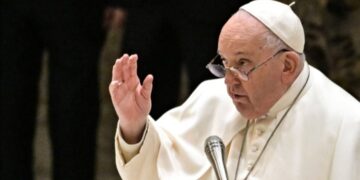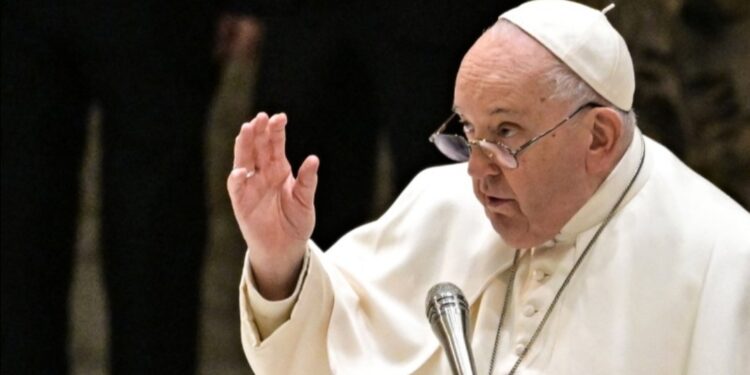By Enyichukwu Enemanna
Bishops of the Roman Catholic Church in Nigeria have offered further explanation on the recent directive by Pope Francis, in which he granted permission for priests to bestow blessings upon same-sex couples, a move seen as significant milestone for the LGBTQ+ community within the Roman Catholic Church.
However, Catholic Bishops Conference of Nigeria (CBCN) says the Pope’s comment does not change the Catholic Church’s teaching on marriage, pegged at union between persons of opposite sex.
President of CBCN, Bishop Lucius Iwejuru Ugorji and the Secretary, Bishop Donatus Ogun, made their stance known in a statement.
According to the Bishops, the directive by the Pope seeks to explain the different forms of blessing that can be given to persons and objects in the Catholic Church, including the possibility of blessing persons in irregular unions.
They listed the unions to include and not limited to divorced and remarried couples whose previous marriages had not been annulled, those living in same-sex unions, those in polygamous unions, in concubinage, etc.
“The Declaration acknowledges and carefully distinguishes between ritual, liturgical, and informal blessings.
“While ritual or liturgical blessings are imparted according to the established norms of the Church, informal blessings refer to prayers over people who ask for them outside the liturgy or any formal celebration in the Church.
“The Declaration offers a consideration of the possibility of extending the informal blessing to all God’s children, irrespective of their moral condition, when they ask to be blessed.
“Nevertheless, the Declaration insists that the blessing of persons in irregular unions – and never the union itself – can only take a non-liturgical form to avoid confusion. It should not be imparted during or in connection with a civil wedding ceremony or with clothing, words, and signs associated with a wedding”, the statement read in part.
The Bishops said the Declaration affirms the Catholic Church’s perennial teaching on marriage as an “exclusive, stable and indissoluble union of a man and woman, naturally open to the generation of children” and emphatically states that the Church does not have the power to impart a blessing on irregular unions but individuals who are in it.
The statement added that the Declaration also reinforces the truth about God’s mercy.

































